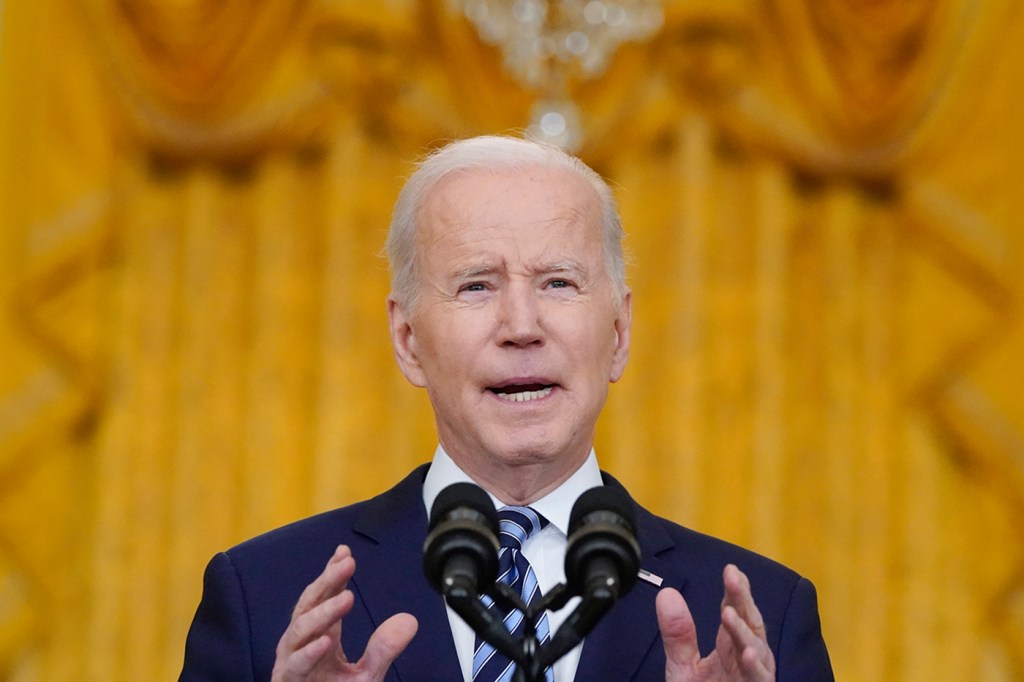Economic sanctions may hurt, but they rarely deter

This report is part of ongoing coverage of the Russia-Ukraine war. Visit our dedicated page for more on this topic.
President Joe Biden unleashed a fresh round of economic sanctions against Russia Thursday as punishment for invading Ukraine, but whether or not the move is deemed successful depends on how it is measured, Northeastern experts say.
Sanctions are often viewed strictly in terms of the amount of economic havoc they cause, in which case they do have a strong record of success, says Max Abrahms, associate professor of political science and an expert in international security. But if sanctions are seen as a coercive tool to pressure governments into changing their policies, then their record is not as impressive.
“We need to be very clear about how we measure that,” he says.

‘My fear is that Putin is going to get away with it again,’ says Pablo Calderón-Martinez (left), assistant professor in politics and international relations at NCH at Northeastern in London. Max Abrahms (right), associate professor of political science and an expert in international security, doubts the effectiveness of sanctions as a coercive tool to pressure policy changes. Photo by Matthew Modoono/Northeastern University
His comments came as Biden announced new sanctions that he said would impose severe costs on the Russian economy, both immediately and over time. The president said the sanctions were designed to maximize the long-term impact on Russia and minimize the impact on the U.S. and its allies.
“Putin chose war, and now he and his country will bear the consequences,” Biden said of Russian President Vladimir Putin. “We will limit Russia’s ability to do business in dollars, euros, pounds, and yen to be part of the global economy.”
Abrahms says he supports the move as a way to lodge firm U.S. opposition to Russian aggression without overly involving the country in a conflict against a nuclear superpower.
“The West needs to respond to Putin in a way which shows to him and the world that this intervention is unacceptable,” Abrahms says.
Short of direct military conflict, however, Putin’s full-scale assault against Ukraine is likely to succeed, says Pablo Calderón Martinez, assistant professor in politics and international relations at Northeastern’s New College of the Humanities campus in London.
“My fear is that Putin is going to get away with it again,” Calderón Martinez says. He’s going to take over vast amounts of territory and there’s really nothing we can do about it.”
The Kremlin doesn’t care about sanctions, as they have been around for years with little visible impact, Calderón Martinez adds.
That point was hammered home by Russia’s ambassador to Sweden in a recent interview: “We are more self-sufficient and have been able to increase our exports,” said Viktor Tatarintsev. “We have no Italian or Swiss cheeses, but we’ve learned to make just as good Russian cheeses using Italian and Swiss recipes.”
Indeed, since the last Ukraine invasion in 2014, Russia has taken steps to buffer itself from the vulnerability of sanctions. Natural gas and coal exports to the European Union have increased, even as European countries ramped up investments in wind and solar power.
And, Moscow just last month signed a lucrative, 30-year natural gas contract with China, further cementing an existing energy partnership between the two countries.
Thus, the latest round of sanctions against Russia may not decimate the country financially, and could even be a sign that Western powers don’t know quite what to make of the Russian leader’s strategy. “Nobody really knows what Putin’s endgame is,” says Calderón Martinez. “I suppose the whole of the West is struggling at the moment.”
The Russian leader may have been prepared to deal with the aftershocks of targeted economic punishment against his country.
“I’ve been watching the Russian stock exchange over the past couple of days, and it has been absolutely shredded by this intervention,” says Abrahms, the international security expert. “That indicates to me that Putin is prepared for the Russian economy to sustain massive losses.”
What war will do to Putin’s image abroad, however, is a different story. “It validates all of the people in the world who see him as a tyrant,” Abrahms says.
For media inquiries, please contact media@northeastern.edu.





